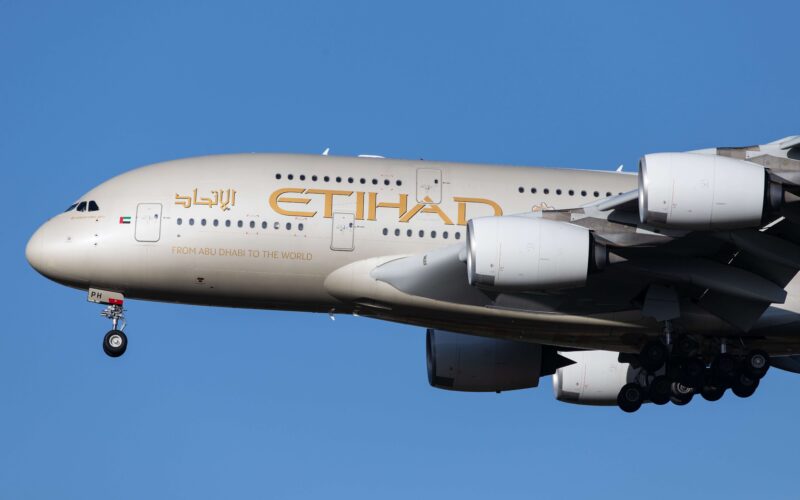Since the beginning of the COVID-19 pandemic, airlines have been reviewing their fleet of widebody aircraft. At the height of the pandemic in 2020, Etihad Airways decided to park its Airbus A380 aircraft “indefinitely” due to the operational inefficiency, as the Gulf carrier raced to become a smaller and more streamlined “boutique” airline.
Commenting on the airline’s decision to oust the Super Jumbos from its fleet, Etihad chief executive Tony Douglas said that Airbus A380 was not an economically viable aircraft to stay in the carrier’s fleet, which is currently under transformation.
“[Airbus A380 – ed. note] simply doesn’t make economic sense any more,” Douglas said while speaking at the SimpleFlying live webinar on August 31, 2021, adding that with the ongoing pandemic, the aircraft is not even close to being competitive.
While talking about the A380 journey on the airline’s fleet, the Etihad CEO was not as critical as its neighboring rival Qatar Airways CEO, who described the purchase of the largest passenger aircraft Airbus A380 as its biggest mistake. Douglas, on the other hand, said that “nothing would give us greatest satisfaction” if the Airbus A380 could return, with the condition that “the big thick routes post-pandemic come back, the load factor, and yield on the tickets get back”.
“We are desperately disappointed to not have A380 operational in our fleet. From the guest experience standpoint, it was outstanding,” Douglas explained.
Etihad had a total of 10 Airbus A380 aircraft in its fleet, as per Etihad data. The airline happened to become the thirteenth carrier to operate the four-engine double-decker. Etihad took its first delivery of its widebody aircraft in December 2014. Worth noting that the Etihad’s first Super Jumbo was the 150th A380 delivered by Airbus.
What changes could we expect in the Etihad’s fleet?
The Etihad chief executive reaffirmed that the Boeing 787 Dreamliner will remain the backbone of Etihad’s fleet, which is currently under transformation.
“We are not a registered charity, we have to be very commercial in all of the undertakings and the decisions that we make. And therefore 787 is by far the winning ticket when it comes to the performance and in particular the sustainability performance, both financially and environmentally,” Douglas explained.
The Abu Dhabi-based air carrier is one of the biggest operators of Boeing 787 Dreamliner aircraft in the world, having a total of 39 Dreamliners in its fleet, Boeing orders and deliveries data shows.
However, while the Dreamliner is the airline’s backbone, Douglas said that the airline was also looking forward to introducing its brand-new Airbus A350-1000 XWB aircraft in 2022.
“We accepted the first two [A350-1000 XWBs – ed.note] three months ago to undertake a cabin fit out. We’ll look to schedule those next year,” Douglas said during the interview.

